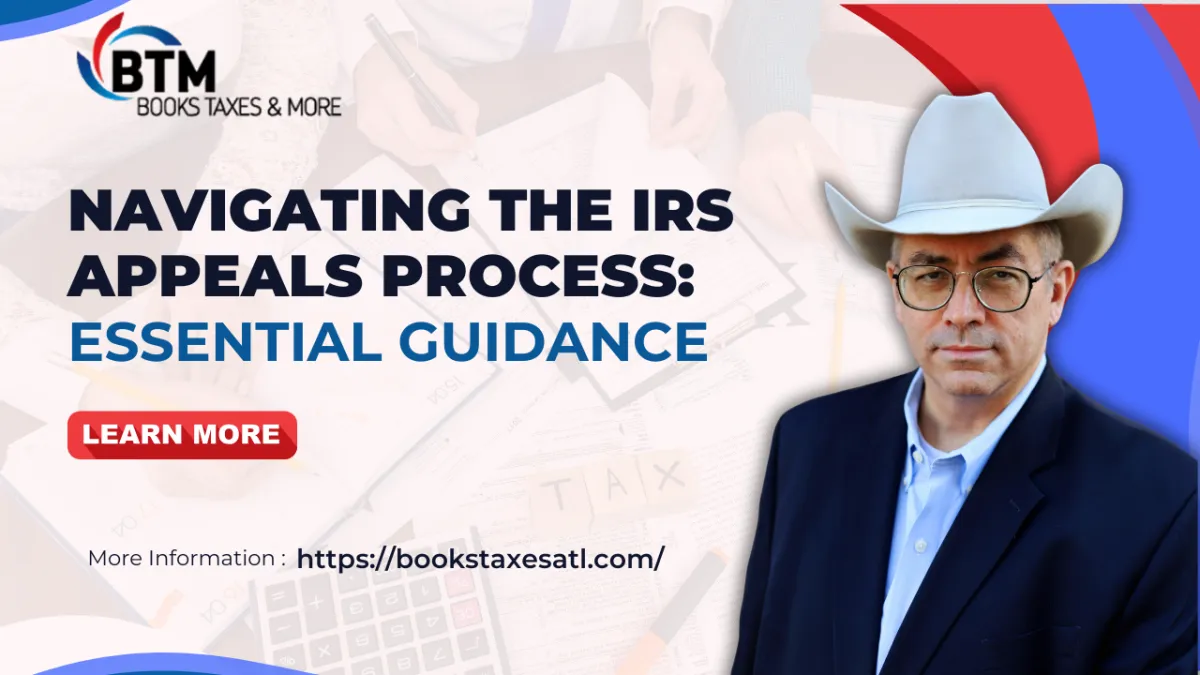Navigating the IRS Appeals Process: Essential Guidance
- The IRS appeals process offers taxpayers an impartial way to resolve disputes involving audits, penalties, collections, and other tax decisions without going to court. - Steve Perry, Enrolled Agent (EA) at Books, Taxes & More, expertly manages appeals by reviewing IRS notices, building strong protest cases, and negotiating effectively during appeals conferences. - Appeals over $25,000 require detailed protests with supporting documentation, while smaller cases may use simplified forms; strategic arguments align with tax law and precedents. - Perry skillfully negotiates using the IRS's litigation risk model and can escalate unresolved cases to Tax Court or refer to attorneys as needed. - Effective tax representatives combine tax knowledge, negotiation skills, strategic thinking, and IRS experience to advocate for the best outcomes. - Proper documentation is critical for validating tax claims, reducing penalties, speeding audits, and building defenses; key records include receipts, mileage logs, bank statements, income reports, and legal documents. - The IRS recommends keeping records for at least three years, longer in cases of underreported income, fraud, or property-related transactions. - As an EA, Steve Perry guides clients in organizing, maintaining, and reconstructing records, representing them before the IRS, and educating on documentation requirements. - With expert representation and thorough documentation, taxpayers are empowered to protect their financial interests and face IRS challenges confidently.

